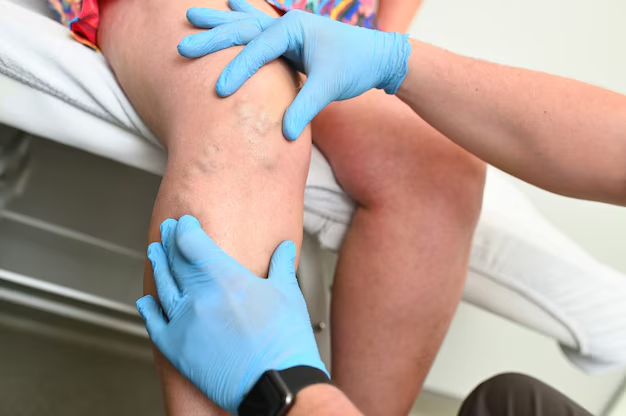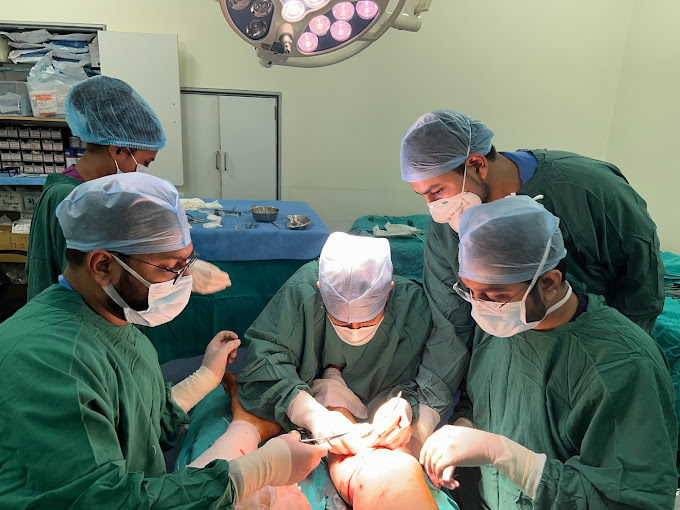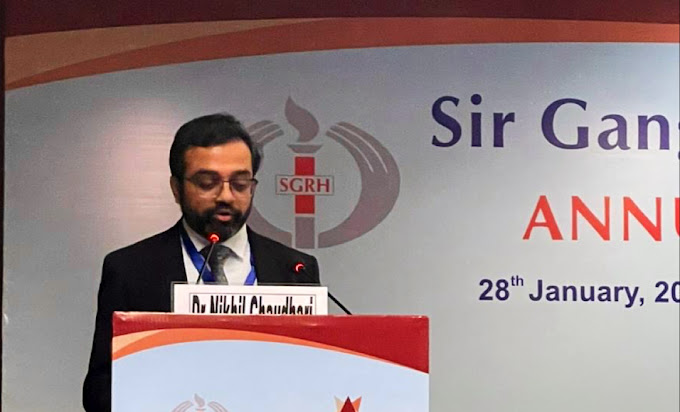Best Deep Vein Thrombosis (DVT) Treatment in Delhi: What You Need to Know
Hey there. If you or someone who is looking for Deep Vein Thrombosis Treatment in Delhi, it’s completely normal to feel worried and have a lot of questions. The most important one is probably, “What’s the best treatment, and where can I get it?”
The good news is that Delhi is home to some of the best hospitals and medical professionals in India. This guide will walk you through what DVT is, the treatment options available, and how to find the right Doctor for you in Delhi. Let’s break it down into simple, understandable parts.
First Things First – What Exactly is DVT?
Imagine your blood clotting and forming a thick, gel-like lump inside a deep vein, usually in your leg. That is a deep vein thrombosis (DVT). It is serious because if that clot breaks free, it can travel to your lungs and cause a life-threatening blockage called a pulmonary embolism (PE).
Common signs to watch for:
- Swelling in one leg
- Pain or tenderness, often starting in the calf
- Warmth and redness over the painful area
If you notice these symptoms, especially if they come on suddenly, it’s crucial to see a doctor immediately.
How is DVT Treated? The Main Goals.
As the treatment isn’t one size fits for all. The Doctors aim to:
- Stop the clot from getting bigger.
- Prevent the clot from breaking loose and traveling to your lungs.
- Reduce the chance of another DVT happening.
Common DVT Treatment Options Available in Delhi
There are many top hospitals in Delhi which offer a complete range of treatments from medication to procedures. Here are some Deep Vein Thrombosis Treatment in Delhi:
- Medications – The Most Common Approach
- Blood Thinners (Anticoagulants): These are the most common treatments. They don’t “dissolve” the existing clot but prevent new ones from forming and stop the current one from growing. Your body then naturally breaks down the clot over time.
- Examples: Injections like Heparin, or tablets like Warfarin, Rivaroxaban, Apixaban.
- You’ll likely be on these for several months.
- Compression Stockings
These are special, tight-fitting socks that help prevent swelling and lower the risk of complications like post-thrombotic syndrome (long-term pain and swelling). They’re often used alongside medication. - Thrombolytic Therapy (Clot-Busting Drugs)
This is for more severe cases. These powerful drugs are given through an IV to quickly dissolve a dangerous clot. Because they have a higher risk of bleeding, they are used only in specific situations and require close monitoring in a hospital. - Procedures and Surgeries
For clots that are very large or life-threatening, doctors might recommend:
- Catheter Guided Thrombolysis and Penumbra/ Inari clot suction techniques which are minimally invasive and can be done in local anesthesia. With the advent of technology, even clots in pulmonary circulation can be sucked out from the small hole made in the groin area. Lower limb DVT can effectively be treated by the same advanced techniques like Penumbra and Inari devices.
- IVC Filter: A small, metal device is placed in a large vein to catch clots before they can travel to the lungs. This is usually for people who can’t take blood thinners.
Why Delhi is a Great Choice for Deep Vein Thrombosis Treatment in Delhi
When you choose Delhi, you get access to:
- World-Class Hospitals: Institutions like Sir Ganga Ram Hospital, Apollo, Fortis, Max, and AIIMS, have dedicated vascular departments with state-of-the-art technology for diagnosis and treatment.
- Top Vascular Specialists: You’ll be treated by highly experienced vascular surgeons and interventional radiologists who specialize in vein disorders. They see and treat complex cases every day.
- Comprehensive Care: From accurate ultrasound diagnostics to advanced minimally invasive surgeries and long-term management, everything is available under one roof.
How to Choose the Right Doctor and Hospital in Delhi
This is the most important step. Here’s a simple checklist:
- Look for a Specialist: Seek out a vascular surgeon or a cardiologist with experience in vascular medicine. Don’t just go to a general physician.
- Check Hospital Credentials: Research hospitals known for their cardiology and vascular surgery departments. Look for accreditations and patient reviews.
- Consider Experience: How many DVT procedures does the doctor/hospital perform regularly? Experience matters.
- Consult and Ask Questions: Don’t hesitate to get a second opinion. A good doctor will welcome your questions about treatment options, success rates, and risks.
Consulting with an expert like Dr. Nikhil Chaudhari can provide you with the clarity and confidence needed to manage your condition effectively. It is always recommended to seek advice from a specialist who can guide you through the entire process with expertise and compassion.
Final Thoughts: Your Health is in Your Hands
A DVT diagnosis can be scary, but with modern medicine, it is highly treatable. Delhi offers some of the best medical expertise in the country to guide you through this.
The key is to act fast. Get a proper diagnosis, discuss all your options with a qualified specialist, and follow your treatment plan diligently.
Schedule Your Consultation Today
When it comes to something as serious as Deep Vein Thrombosis, you deserve the best. Dr. Nikhil Chaudhari at Sir Ganga Ram Hospital, Delhi is committed to delivering top-tier care with compassion and cutting-edge technology.
- Call Now: +91-7042555718
- Visit: www.bestvascularsurgeondelhi.com
Disclaimer: This blog is for informational purposes only and should not be considered medical advice. Please consult with a qualified healthcare professional like Dr. Nikhil Chaudhari to discuss your specific condition and treatment options.



